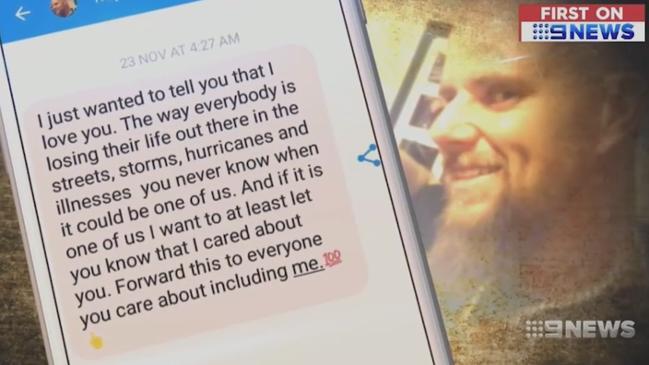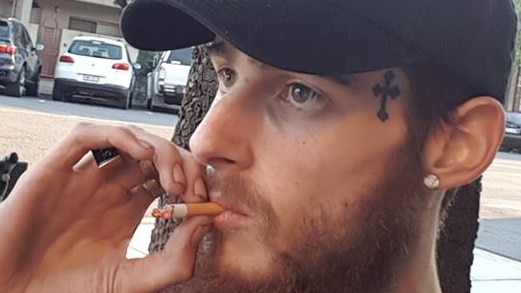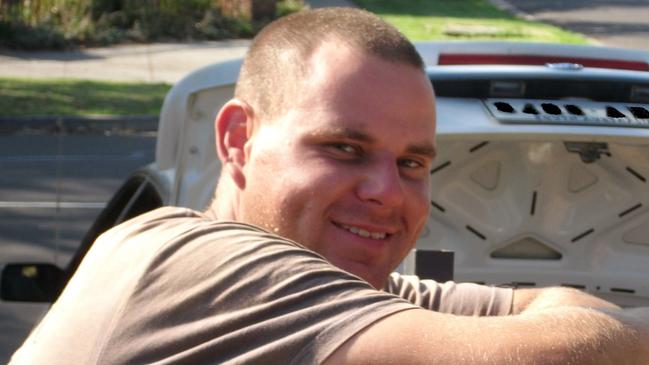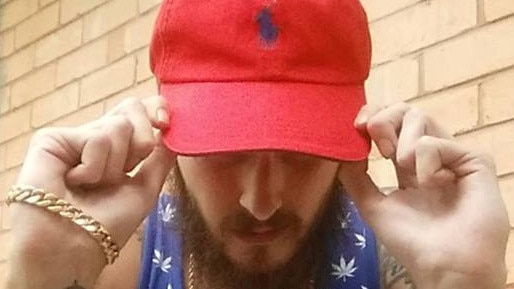David Penberthy: Troy McLean deserve justice, not Benjamin George’s excuses
Benjamin George pleaded guilty to murder, but his lawyers say everything other than his own decisions are to blame. You really have to wonder just how many excuses we can hear, writes David Penberthy.

Rendezview
Don't miss out on the headlines from Rendezview. Followed categories will be added to My News.
There was a time when having a tattoo was considered edgy and tough, a sign the bearer was a true outsider. These days you’re just as likely to find a full coloured sleeve on a 20-something female barista than a member of the merchant marine, the Hells Angels or the CFMEU.
But despite the mainstream appeal and acceptance of being inked up, there is still one final frontier when it comes to tatts, where you can really send a clear signal you have no interest in playing an unobtrusive and productive role in civil society — and that’s where you go down the path of getting your actual face tattooed.
I’ve got no issues with tatts and have plenty of friends who are great people who’ve got them. But frankly, if you’ve got a crucifix emblazoned on the side of your melon, in my judgmental view you’re telling the world you really don’t give much of a stuff.
Exhibit A for that assertion is a chap from Adelaide’s northern suburbs by the name of Benjamin Joshua George, a 26-year-old from Elizabeth East who has got an anchor and a cross emblazoned on his head, and who has now pleaded guilty to the stabbing murder of another man, Troy James McLean, in a sickening road rage incident in one of the tougher parts of the northern suburbs in 2017.

What was a routine and minor bingle escalated immediately, with George attacking Mr McLean with a knife — after which he said, “I warned you” — before driving away and leaving his victim to bleed to death in his car.
The case is a depressingly compelling one as it ticks every box when it comes to the anti-social hard core of humans that makes life a misery for the rest of us.
It also has at its core the key question of personal responsibility, in that this self-confessed killer is quite openly requesting the court give him a lesser sentence, arguing through his lawyer that this spur-of-the-moment act of road rage violence isn’t as bad as premeditated acts of murder.
RELATED: Benjamin George warned victim Troy McLean before stabbing him, court told
It is also a miserably apt example of how the modern day grab-bag of mental illness, impoverishment, a neglectful childhood and limited employment opportunities can be neatly parcelled up in the form of, if not an alibi, then at least an excuse for making a total pig of yourself.
This is going to be an interesting case, because while Benjamin Joshua George has pleaded guilty, the presiding judge Justice David Lovell has not yet sentenced the man — and he gave all indications in court this week that he has little appetite for his excuses.
This was how the exchange unfolded as George’s defence lawyer attempted to craft a sliding scale of heinousness for the crime of murder.

On Thursday, George apologised for killing Mr McLean, calling it a “spur of the moment” act at the end of a long, personal “downward spiral”.
His counsel said the Supreme Court should show mercy because of their client’s dysfunctional and abusive childhood, as well as his addiction to illicit drugs.
They said he was “less morally culpable” than other murderers because of his mental health issues — a submission Justice David Lovell said was hard to accept.
Justice Lovell pointed to records that, in the lead-up to the murder, George had been offered safe accommodation, hospitalisation and medical help — only to refuse it all.
The Judge then offered the following pointed observations to the defence lawyer:
“The reality is, after the most minor of taps to your client’s car, he got out and attacked a defenceless man who had really done nothing,” he said.
“He then chased and continued to attack Mr McLean, departed the scene without rendering assistance and, after, made extremely aggressive comments.
“Somewhere in all of this, there has to be some responsibility taken for managing one’s own mental health … people tried to help him, but he didn’t engage.”
It is not up to me or anyone outside the court to cheer on the Judge, as he will draw his own conclusions on the basis of the evidence before him.

But it is interesting — and refreshing — given the criticism the judiciary faces to see someone who is so vigilant on the question of personal responsibility that he will offer such pithy and deserved observations from the bench.
The reality is that whatever contrition George has shown seems to be more about limiting his punishment, especially when you factor in his exculpatory attempts to attribute his conduct on everything other than his own rotten choices.
He has made much of how he was affected at the time by drugs and a lack of sleep, and a decline in his mental health.
Whoopee-do. His mental health would not have declined so much if he hadn’t chosen to take drugs and had caught up on his sleep (which was probably only disrupted on account of his drug taking, anyway).
Also on Thursday, the court was read a victim impact statement written by Mr McLean’s 11-year-old son, Cai.
“I’m angry all the time that someone would do this … you took someone very special from me,” he wrote.
“I wish you go to jail forever for what you have done … I don’t understand why you did what you did, and I hate you.”
I reckon the rest of us are with you there, Cai, you poor kid. Justice Lovell will sentence George in two weeks.

